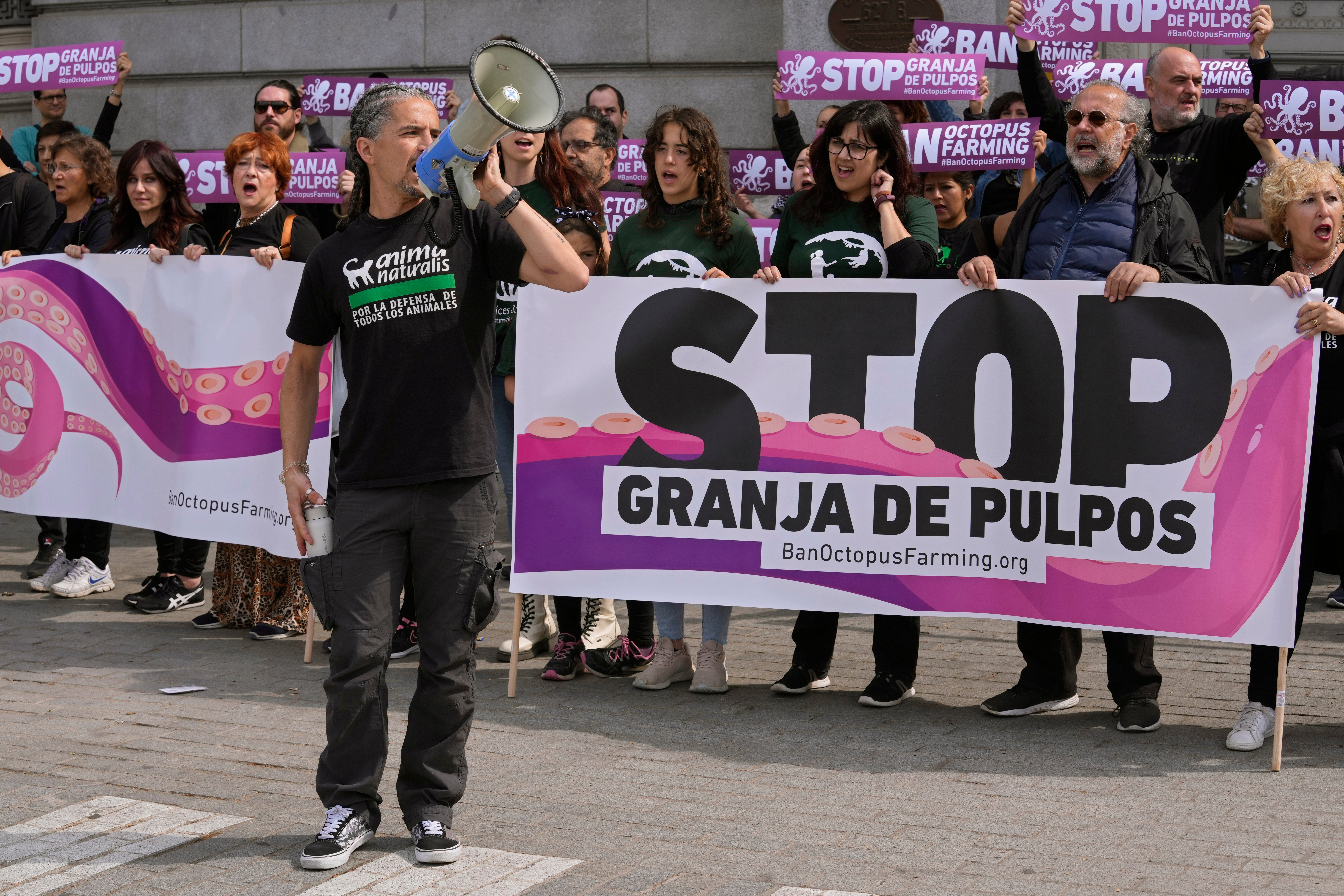Animal rights activists protest octopus farm plans in Spain
Animal rights activists have gathered in Madrid to protest plans for the construction of a large-scale octopus farm

Your support helps us to tell the story
From reproductive rights to climate change to Big Tech, The Independent is on the ground when the story is developing. Whether it's investigating the financials of Elon Musk's pro-Trump PAC or producing our latest documentary, 'The A Word', which shines a light on the American women fighting for reproductive rights, we know how important it is to parse out the facts from the messaging.
At such a critical moment in US history, we need reporters on the ground. Your donation allows us to keep sending journalists to speak to both sides of the story.
The Independent is trusted by Americans across the entire political spectrum. And unlike many other quality news outlets, we choose not to lock Americans out of our reporting and analysis with paywalls. We believe quality journalism should be available to everyone, paid for by those who can afford it.
Your support makes all the difference.Animal rights activists gathered Sunday in Madrid to protest plans for the construction of an octopus farm in Spain, saying there are no respective laws in the country and the European Union to guarantee the welfare of the animals in captivity.
The proposed farm, which aims to breed octopuses on a large scale in captivity, is scheduled to be built next year in the Canary Islands, a Spanish archipelago located in the Atlantic Ocean.
A few dozen people showed up to express their concerns regarding a project that plans to confine 3 million octopuses in pools, despite these creatures being solitary predators in their natural habitat.
“It is similar to imprisoning tigers together. They will prey on one another and will also attempt to escape due to their high intelligence and adeptness”, said Jaime Poasada, a spokesperson for the protest called by various animal welfare organizations.
Octopuses grown in captivity will behave differently from those in the wild, said Nova Pescanova, the seafood company promoting this farm. Since 2018, the company has run a pilot project in a research facility in northern Spain, where they have succeeded in breeding five captivity-born generations of the cephalopod.
“It is not possible to grow any (animal) species in the European Union without respecting their welfare conditions. It is the standard, and our group does nothing but comply with guidelines and legislations,” said Roberto Romero, the multinational's aquaculture director.
Since the demand for octopus consumption has been on the rise, farming octopuses is being regarded as a first step towards ensuring sustainable food production.
Octopus is a staple in the Mediterranean diet, particularly popular in Spain and Italy, although both of them import most of the octopus they consume. Recently, the global demand for this delicacy has expanded, with countries like the United States witnessing a 23% increase in imports and China experiencing a 73% surge between 2016 and 2018, according to the U.N. Food and Agriculture Organization.